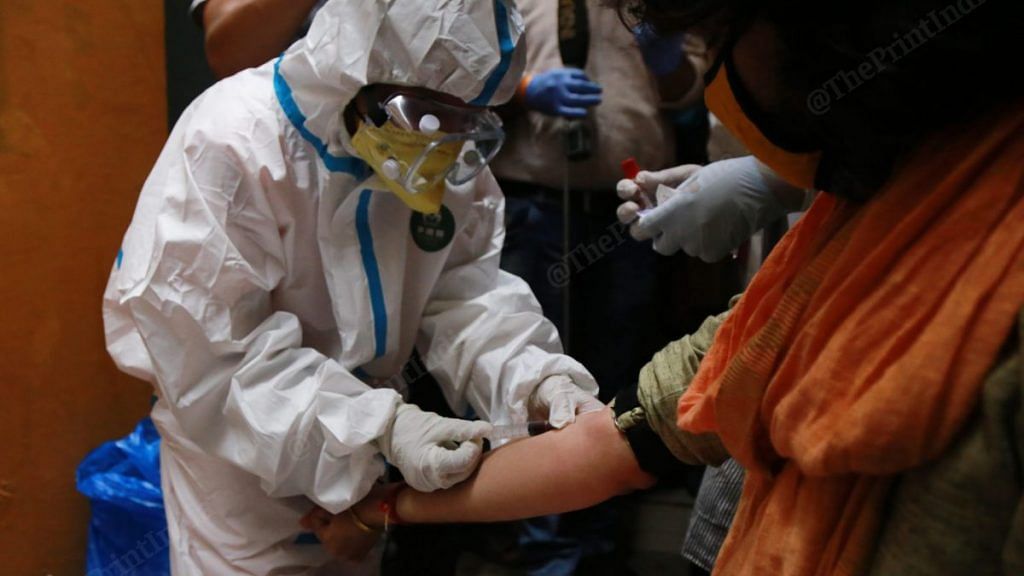New Delhi: Almost one in four people in Delhi had been infected by the novel coronavirus till the first week of July, a serological survey conducted by the National Centre for Disease Control has found.
The survey report said 23.48 per cent of the 21,387 samples collected across 11 districts of Delhi had antibodies against the SARS-CoV2.
This would mean for a city with an approximate population of 2 crore, the total number of cases should stand somewhere around 47 lakh — Delhi currently has a total of 1,23,747 cases.
Missed cases would also result in community transmission, something that Delhi Health Minister Satyender Jain had expressed apprehensions about last month.
The study was conducted from 27 June to 10 July. This is one of the largest sero-prevalence studies conducted in the country using the ELISA testing.
Also read: Delhi seems to have hit Covid peak with cases declining significantly, says AIIMS director
What the survey means
In a statement, the Ministry of Health and Family Welfare said: “Nearly six months into the epidemic, only 23.48% of the people are affected in Delhi, which has several pockets of dense population. This can be attributed to the proactive efforts taken by the Government to prevent the spread of infection including prompt lockdown,effective containment and surveillance measures, including contact tracing and tracking, as well as citizen’s compliance to COVID Appropriate Behaviours.”
However, it added, a significant proportion of the population is still vulnerable. “Therefore, the containment measures need to continue with the same rigour. Non-pharmacological interventions such as physical distancing, use of face mask/cover, hand hygiene, cough etiquette and avoidance of crowded places etc., must be followed strictly.”
Teams for the serological survey were formed for all 11 districts of Delhi. Blood samples were collected from selected individuals after taking written informed consent and then their sera were tested for IgG antibodies and infection using ‘COVID KAVACH ELISA’ approved by the Indian Council for Medical Research (ICMR). IgG antibodies are the most common antibodies found in the human body.
As many as 21,387 samples were collected. The tests help in identification of the presence of antibodies in the general population. Antibody testing repeatedly done over time, i.e. sero-surveillance, generates important evidence for assessing the spread of the pandemic from time to time, the ministry added.
Last month, the ICMR had released the results of the first phase of its nationwide serological survey on Covid-19. It collected data from 26,400 people across 69 districts. After analysis of data from 65 districts it found that 0.73 per cent people in these districts had been exposed to the virus till 30 April.
The NCDC survey has a far bigger sample size in comparison to the population it is attempted to assay.
Also read: India’s R value for Covid climbs a second time this month, at 1.17 now from 1.11 last week
